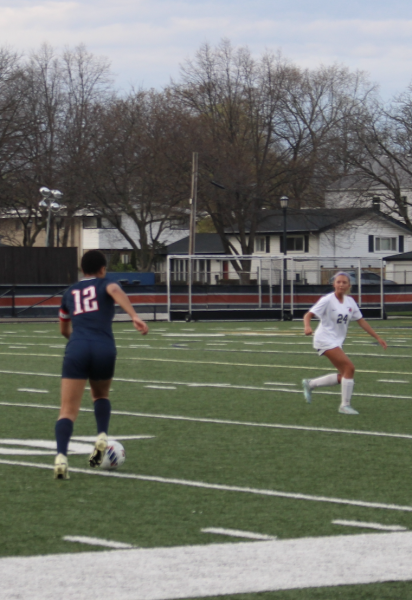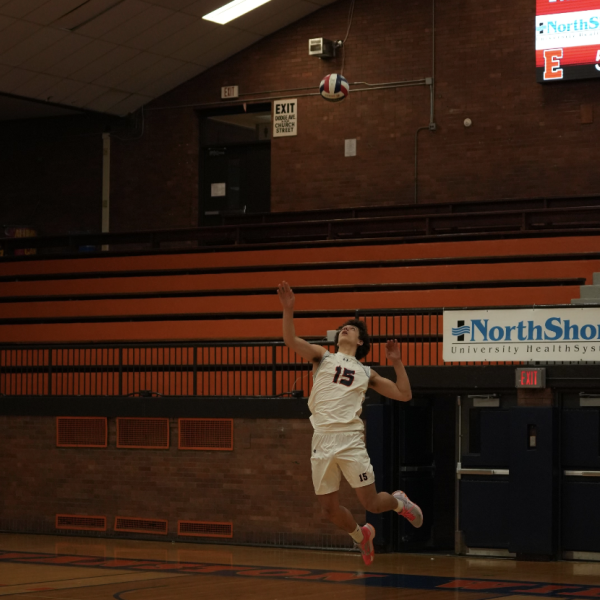Students don’t realize the importance of the ImPACT test

While students deliberately fail the ImPACT test in hopes to slyly alleviate the risks of concussion detection, students are only hurting themselves.
Students don’t understand the significance of a concussion. Concussions are not a joke. I’ll repeat myself: concussions are not a joke; you may not give a crap now, but you might later, when, similar to countless former NFL players, you have chronic traumatic encephalopathy (CTE) causing you to suffer from memory loss, depression and dementia.
While high school sports–whether on the baseball diamond, badminton court, or soccer field–don’t have the same grueling contact as NFL games, high school student-athletes are not immune to concussions, or their repercussions.
In the 2015 fall season alone, 16-20 ETHS student-athletes reported a concussion.
The immediate side effects of a concussion, known as post-concussion syndrome, are severe. A concussion may cause headache, dizziness, sleep problems, psychological symptoms such as depressed mood, irritability, and anxiety, and cognitive problems involving memory, concentration, and thinking.
If you decide to ignore your concussion– and not take the typical one to three weeks off–continuing to play your sport, you could suffer from second impact syndrome. Second impact syndrome is often fatal. Yeah, I said FATAL.
On a more positive note, ETHS has Immediate Post-Concussion Assessment and Cognitive Testing, or the ImPACT test, to protect student-athletes returning too soon from suspected concussions and to help minimize the side effects that come with them. All students are required to take an ImPACT baseline test freshman and junior year. The results give a standard that the concussed student must reach to return to play.
Unfortunately, students falsely perceive the ImPACT test as a waste of time. The ImPACT test can detect an impairment to the cognitive functions of your brain–a symptom of a concussion–even while the rest of your symptoms may have subsided. The ImPACT test is on your side.
Admittedly, there is nothing the ImPACT test can do to prevent concussions; as long as there are contact sports, there will be concussions. It is the responsibility of the player to go to the trainer when they suffer a traumatic hit during practice; hiding your potential concussion from a trainer is not “tough,” it is idiotic.
If you don’t realize the impact of the ImPACT test, and chose to deliberately fail the test, there is a mechanism in place to catch you.
I understand the yearning to do everything to help your team win. After all, when I had surgery on my wrist, I came back weeks early to play a top-ranked New Trier lacrosse team.
However, understand that you safety comes first, and winning one game is not worthy risking your health for the rest of you life. You can’t fix your brain. They don’t have a surgery for that (yet). So, I beg you don’t be “tough.” Don’t cheat the ImPACT test, and sit out if you are concussed.
Your donation will support the student journalists of the Evanstonian. We are planning a big trip to the Journalism Educators Association conference in Philadelphia in November 2023, and any support will go towards making that trip a reality. Contributions will appear as a charge from SNOSite. Donations are NOT tax-deductible.





